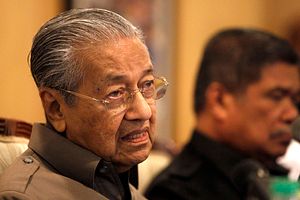In a sign of potential reform, the Malaysian government of Prime Minister Mahathir Mohamad appears to be moving toward abolishing the death penalty. Though there is still some uncertainty around how things will eventually play out, it has nonetheless sparked a conversation about potential alternatives the country could adopt in this respect.
Malaysia is not alone in having the death penalty in Southeast Asia. While a few countries have abolished the death penalty in recent decades, such as Cambodia and the Philippines, it is still used in other countries like Indonesia and Singapore and remains on the books in other places such as Brunei and Laos. Despite variations in frequency of use, it has at times led to unwanted tensions in diplomatic relations with countries opposed to the death penalty.
In Malaysia, by one estimate, about 1,200 people are on death row for crimes ranging from murder to drug trafficking. Charges like rape that causes death, child rape, kidnapping, and terrorism also carry the death penalty.
Law Minister Liew Vui Keong has raised the possibility of Malaysia getting rid of the death penalty and considering alternatives. Liew has cast this as part of a wider promise by the new government in its election manifesto to get rid of oppressive and cruel laws in the country.
The re-evaluation, which initially made headlines around the World Day Against the Death penalty, has been tentatively welcomed by international rights groups and was an obvious cause for celebration by those on death row. Amnesty International led the chorus of human rights groups that are campaigning for an end to the death penalty, saying the Malaysian decision was “a major step forward” for what is “an ultimate cruel, inhumane, degrading punishment.”
Despite the initial optimism, the exact path forward for Malaysia in this respect remains unclear. The Law Minister has expanded on why a reconsideration is necessary, pointing to the fact that there has been a government study conducted indicating that there is no deterrent effect from the death penalty. He also has ordered a halt on all executions until legislation is gazetted and comes into effect.
“Since we are abolishing the sentence, all executions should not be carried out… We will inform the Pardons Board to look into various applications for convicts on the waiting list to either be commuted or released.”
To address concerns among some, including lawmakers, Liew has also subsequently said that Malaysia will approach any re-evaluation carefully, including making sure that the death penalty is replaced by some version of life imprisonment or longer jail terms, with a terms of 30 years being thrown out as an example.
But the Malaysian Bar has warned that death sentences should not automatically be replaced by these alternatives, but rather be replaced by specific jail terms in relation to the severity of their offences and other specific circumstances.
“Only then will the punishment of imprisonment meted out be just and effective,” its president George Varughese said in a statement on October 16.
One thing is for certain: if Malaysia does get rid of the death penalty, it will be in good company. Malaysia will emerge as the 107th country to rid itself of state-sanctioned killing, compared with just 64 nations just two decades ago.
Luke Hunt can be followed on Twitter @lukeanthonyhunt

































